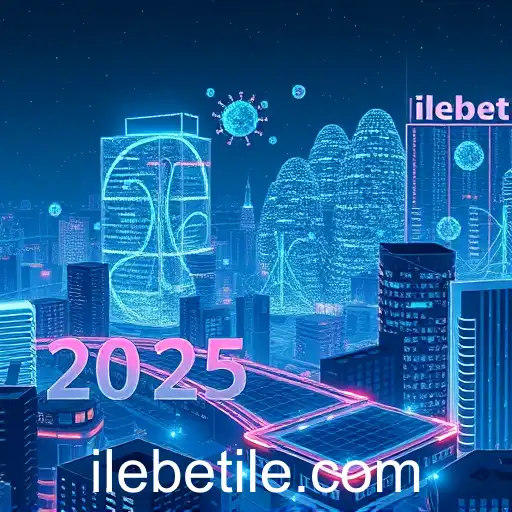
An exploration of the pivotal role digital transformation is playing in reshaping global business dynamics and societal interactions in 2025.
As we navigate through 2025, the digital revolution continues to redefine the landscape of global business and societal interactions. The rise of digital platforms, AI innovations, and the lasting impact of the pandemic have driven significant changes across sectors. One of the key players in this transformation is the burgeoning sector of online platforms like 'ilebet', driving new interactive dynamics between businesses and consumers.
In recent years, the rapid adoption of artificial intelligence and machine learning technologies has been at the forefront of digital transformation. Companies worldwide are harnessing these technologies to optimize operations, enhance customer experiences, and create new revenue streams. AI's role in predictive analytics allows businesses to anticipate market trends and consumer behaviors with unprecedented accuracy—a vital asset in this fast-paced digital era.
Meanwhile, the diffusion of innovations through platforms like ilebet highlights the significant shift towards a more interconnected and digitally-driven world. These platforms not only offer convenience and accessibility but also serve as a bridge for global interactions, providing opportunities for businesses to reach wider audiences. This evolution in digital engagement is evident as companies innovate to capture and retain the modern consumer’s attention span.
The post-pandemic world has catalyzed changes in remote work structures, accelerating the need for robust online environments. Businesses have redefined their strategies to adapt to remote and hybrid work models by investing heavily in digital infrastructures. The digital workplace has become a staple of most industries, emphasizing the importance of secure and efficient digital communication tools.
As technology evolves, so do concerns about privacy and cybersecurity. In 2025, ensuring data protection remains a top priority for businesses, governments, and individuals alike. The need for robust cyber defenses grows in tandem with the expansion of digital ecosystems, prompting discussions about regulations and safeguarding personal information.
Innovation remains crucial as industries grapple with these challenges. As we move forward, the emphasis will likely shift towards creating sustainable digital solutions that prioritize both growth and ethical considerations. Engaging with emerging technologies responsibly will be vital in shaping a future that embraces digital transformation while ensuring the well-being and security of users globally.




